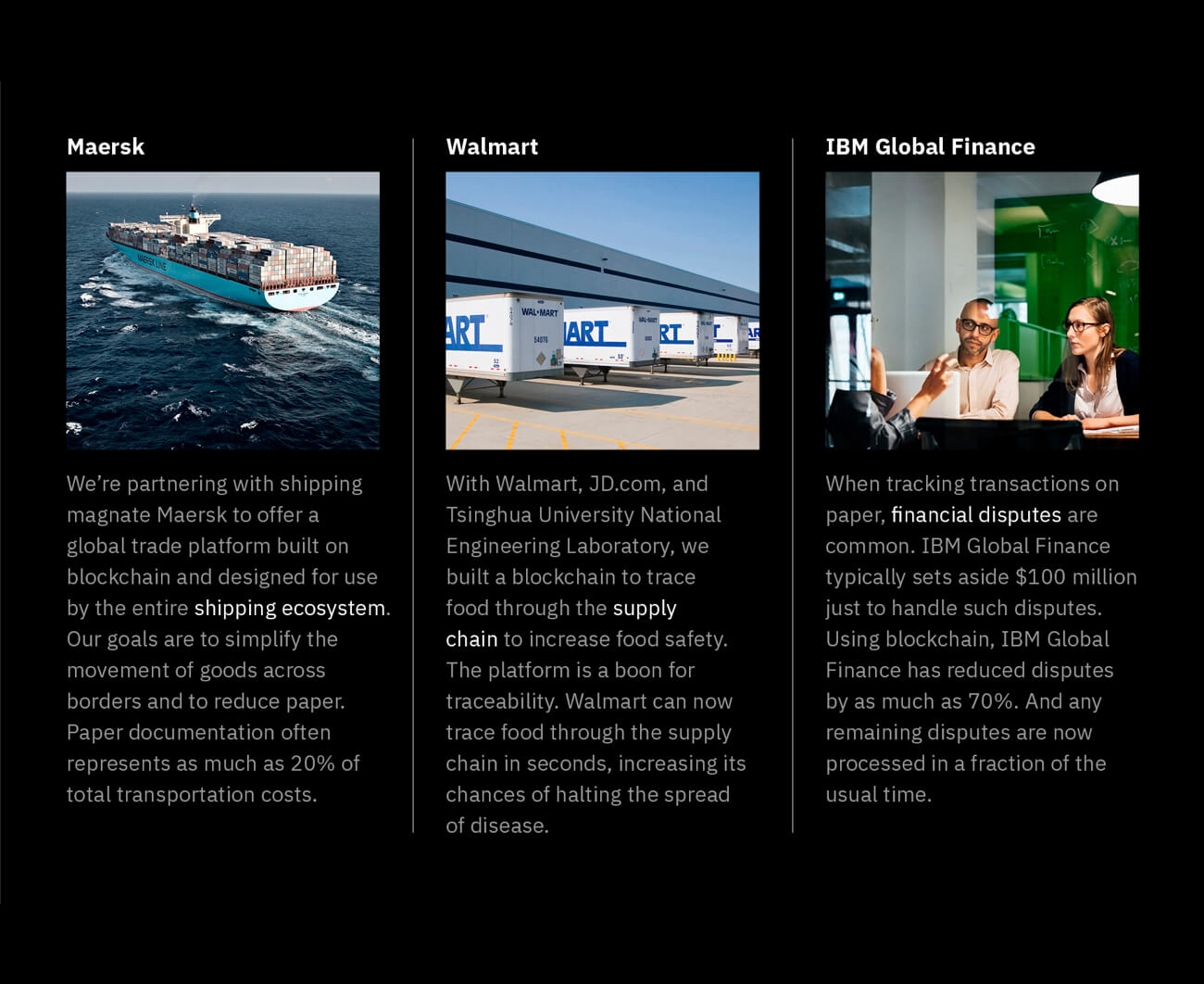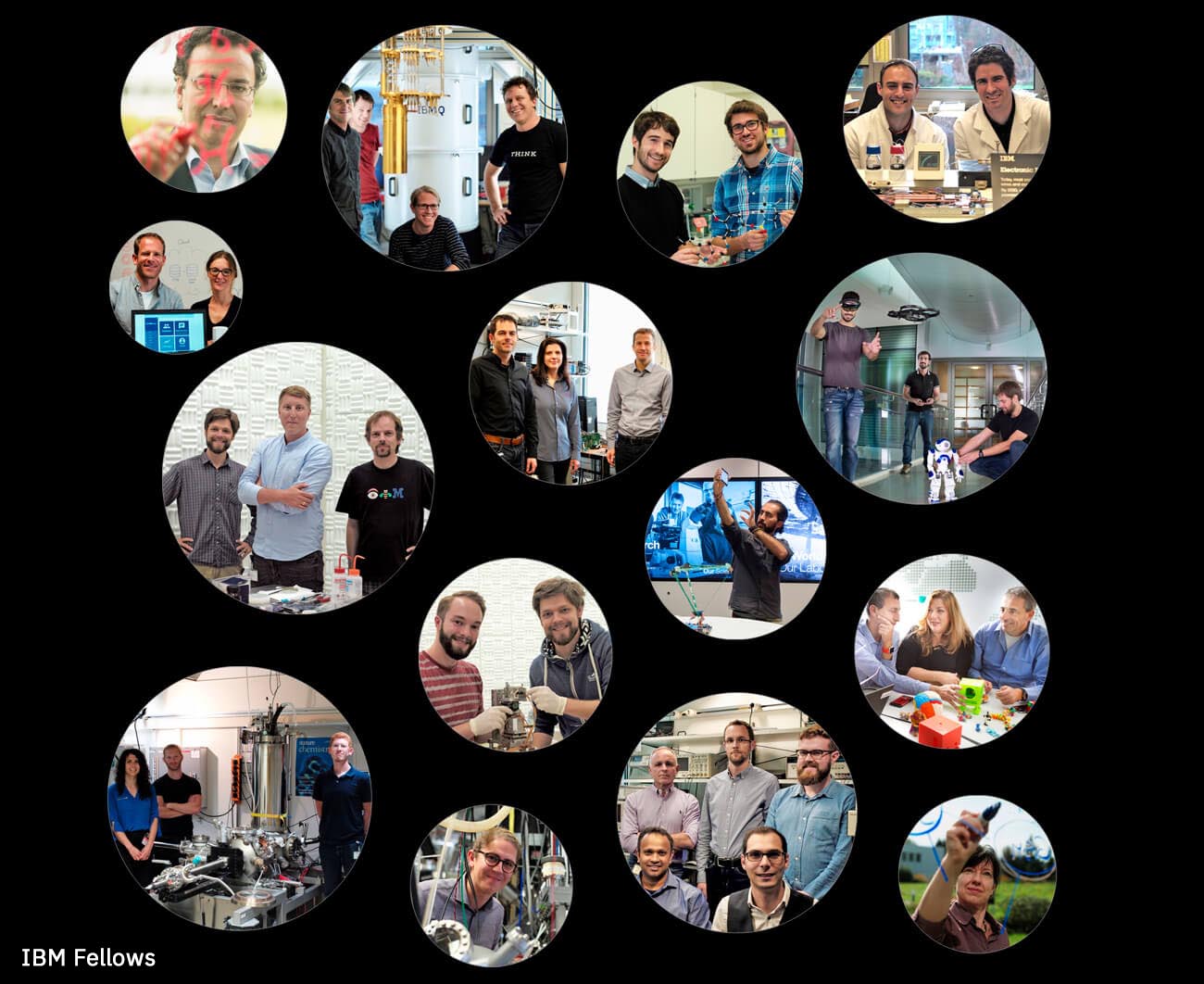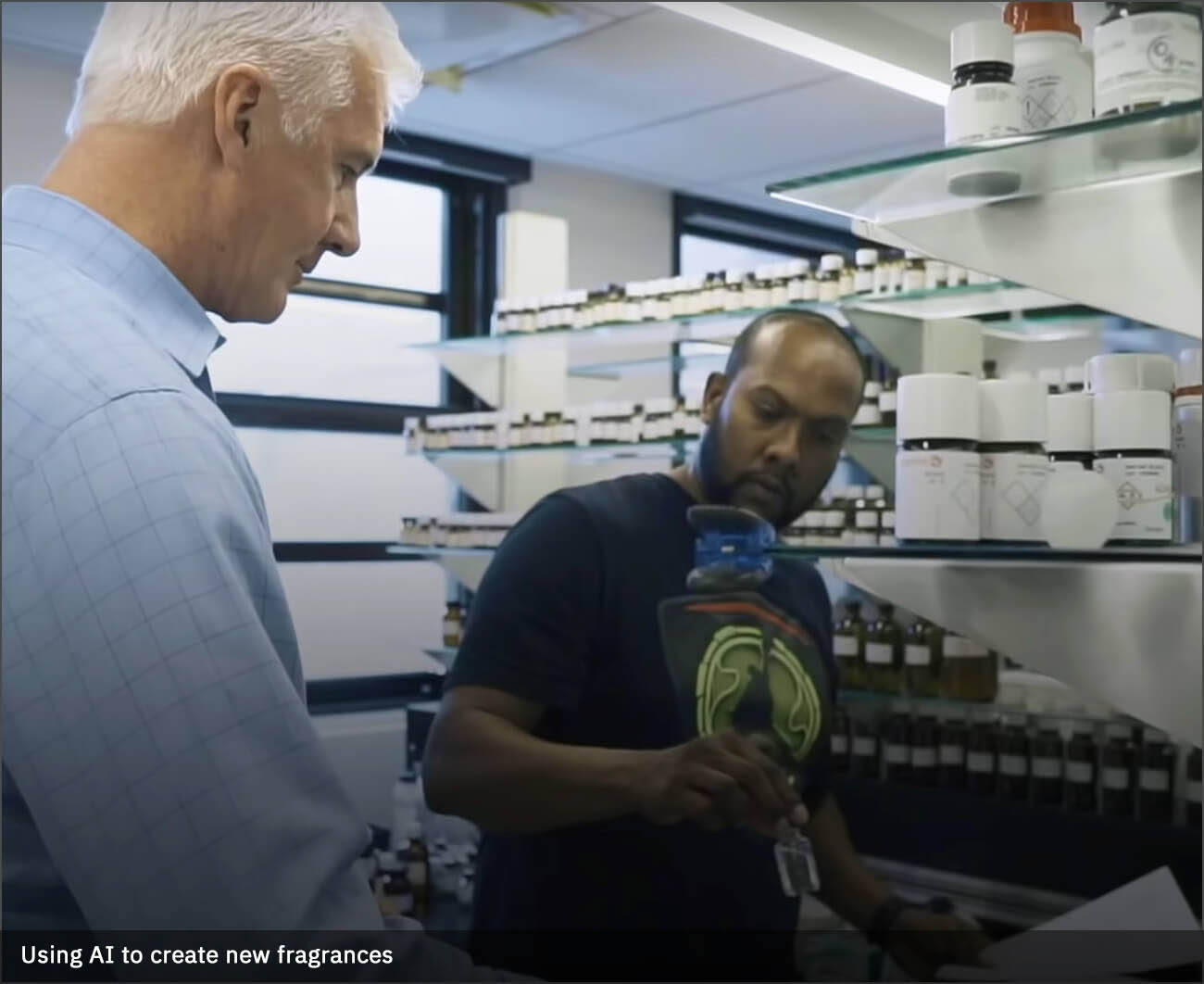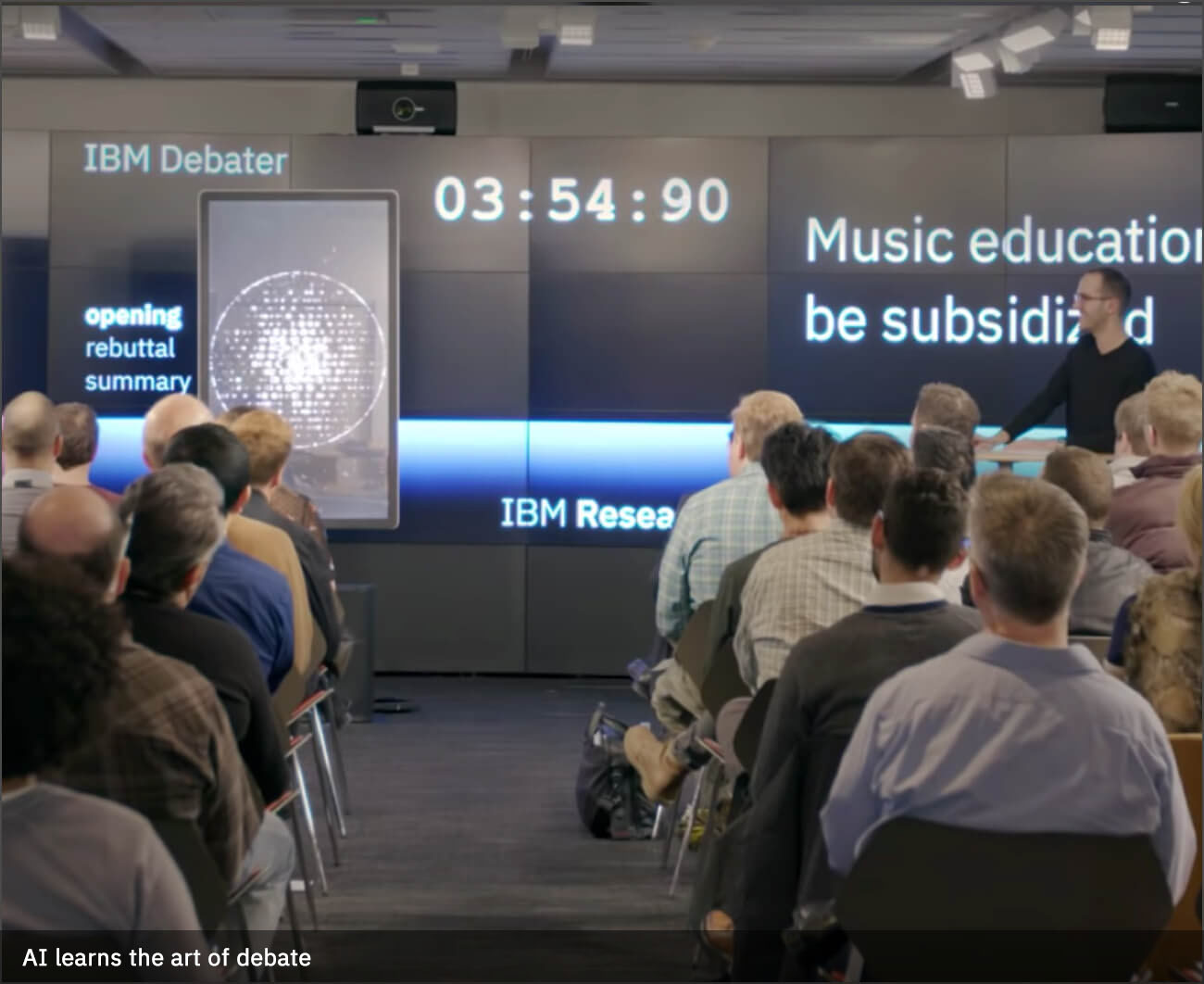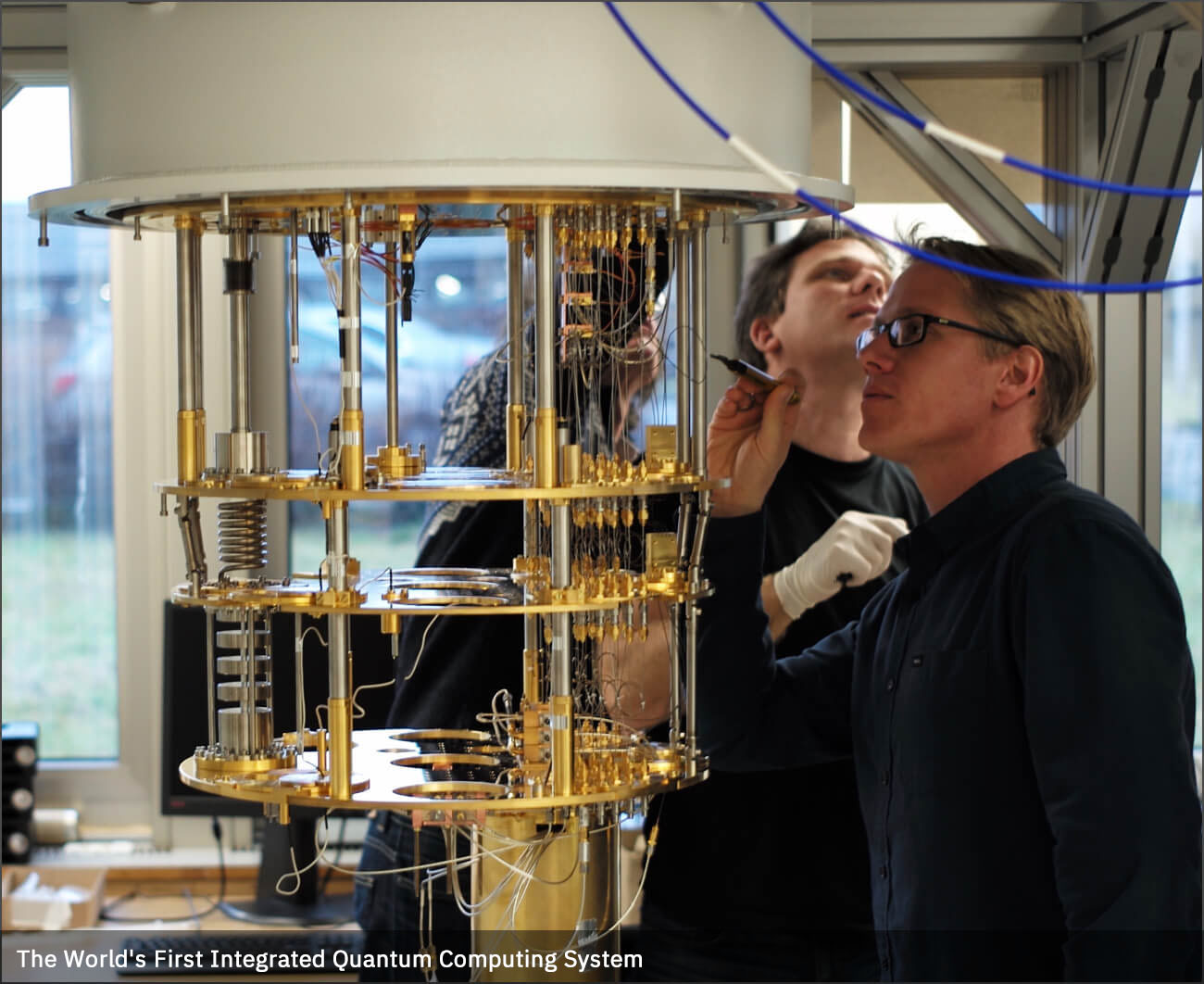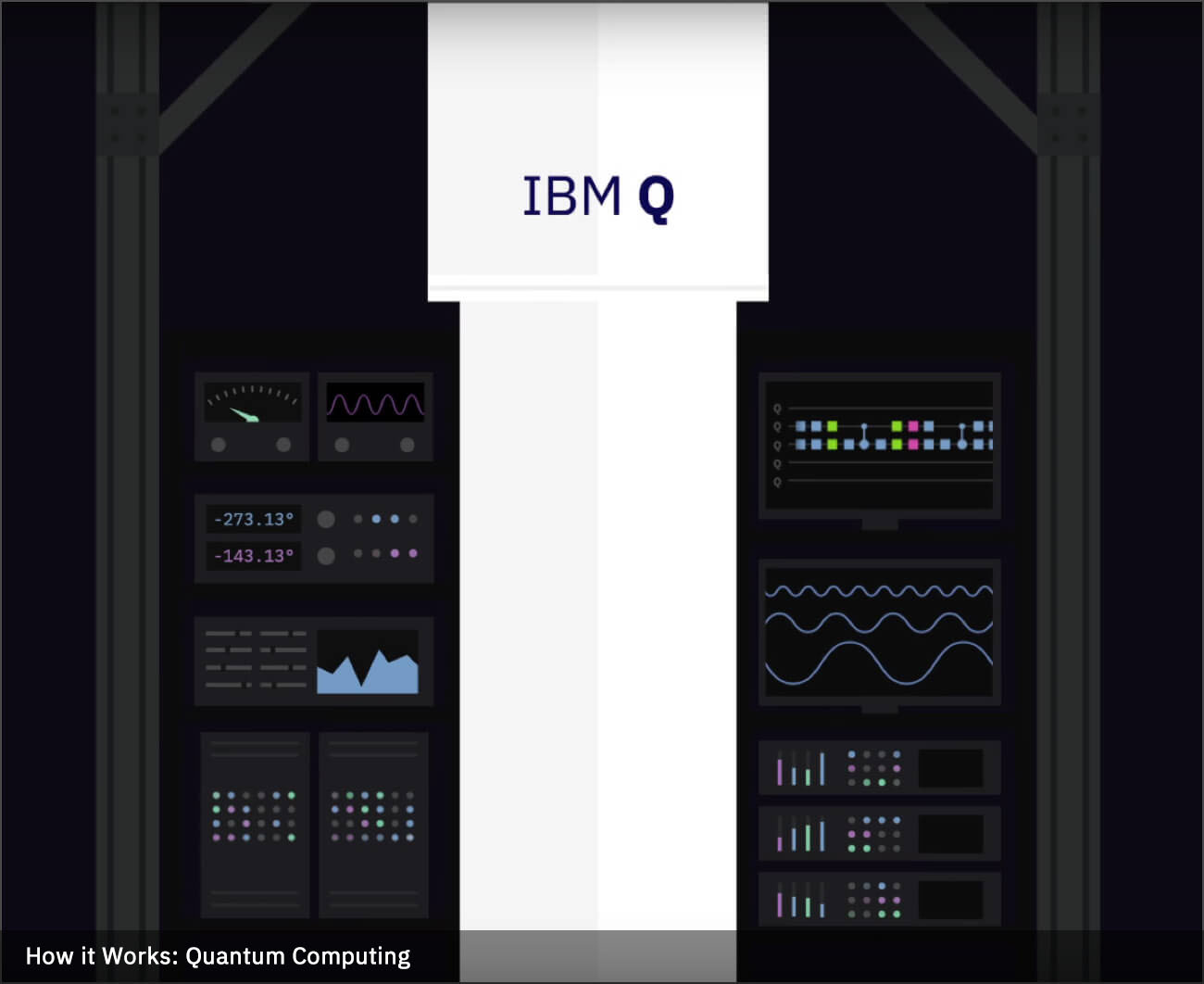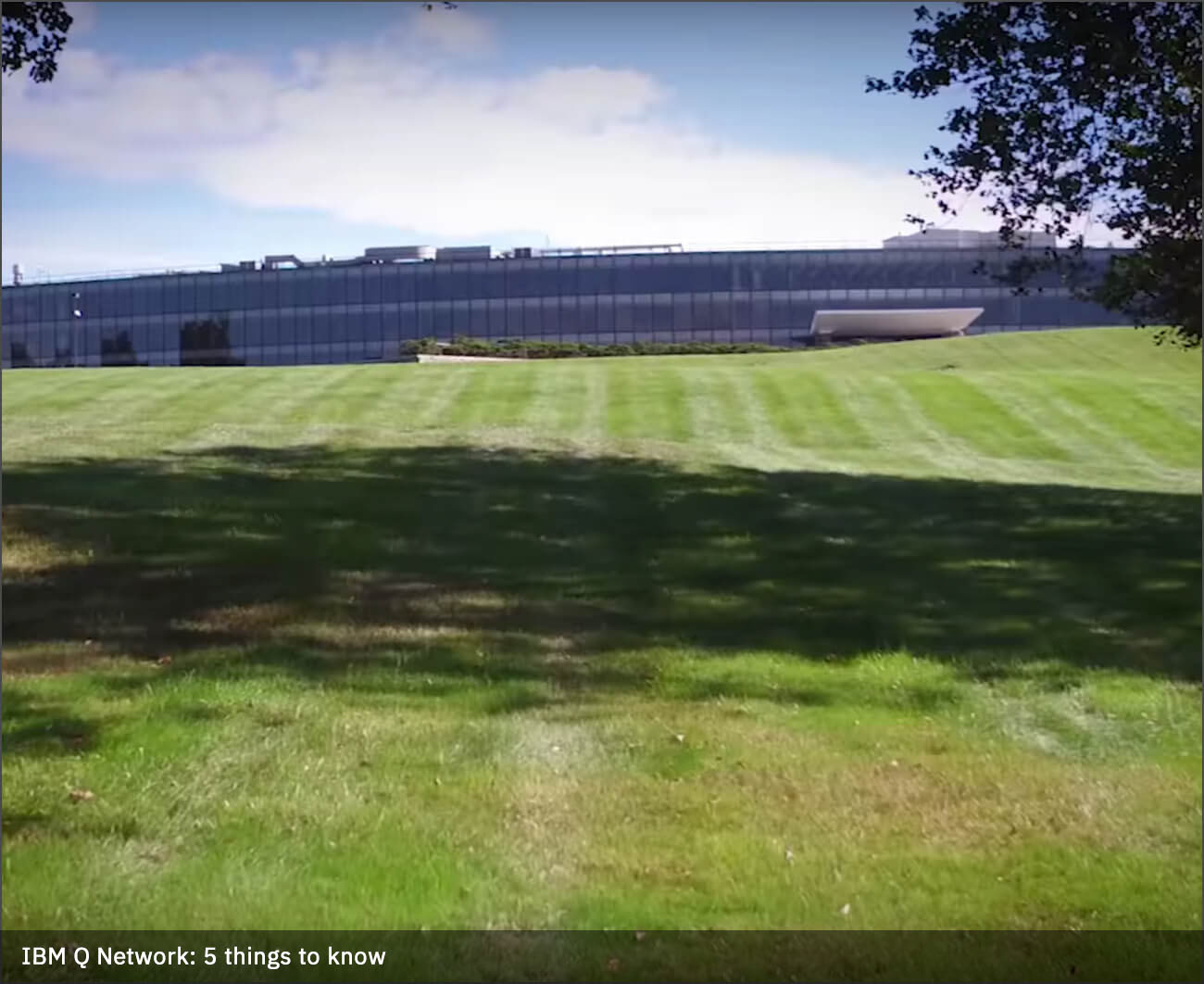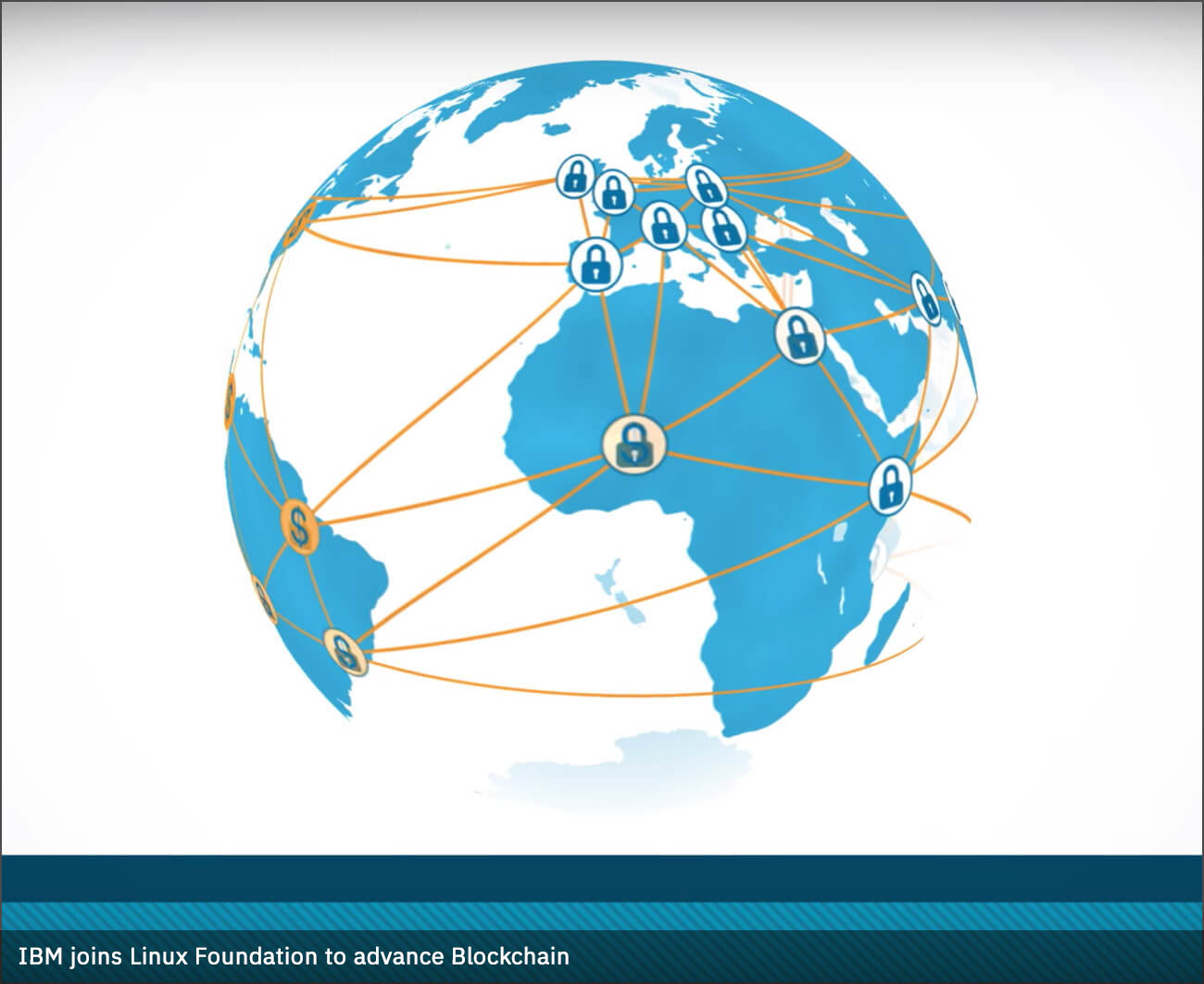IBM Research
Explore one of the world’s leading corporate research organizations and pioneer the future with us
How does IBM
Research
transform the world?
What is the
future
of enterprise AI?
Are you quantum ready?
How is
blockchain
revolutionizing industries?

IBM RESEARCH
Who we are and why we are
different
→
IBM RESEARCH
What we are working on
today
→
IBM RESEARCH
On the shoulder of giants
→
IBM RESEARCH
Today’s visionaries
→
IBM RESEARCH
Our most notable inventions
→
IBM RESEARCH
Explore more
→
IBM RESEARCH
Who we are and why we’re different
At IBM Research we innovate and imagine the future. IBM Research is one of the world’s largest and most influential corporate research labs, with more than 3,000 researchers in 12 labs located across six continents.
We invent things that matter to the world. We pioneer the most promising and disruptive technologies that will transform industries and society. Our sustained investment in basic research and core science is unmatched.
We collaborate across disciplines and partner with clients to address some of the world’s biggest challenges.
IBM RESEARCH
What we’re working on today
Our scientists are charting the future of artificial intelligence and creating breakthroughs like quantum computing. They are defining how blockchain will reshape the enterprise, developing the technological foundations and security for tomorrow’s hybrid and multi-cloud enterprise IT and much more.
We are dedicated to applying AI and science to industry challenges, whether it’s discovering a new way for doctors to help patients, teaming with environmentalists to clean up our waterways or enabling retailers to personalize customer service.
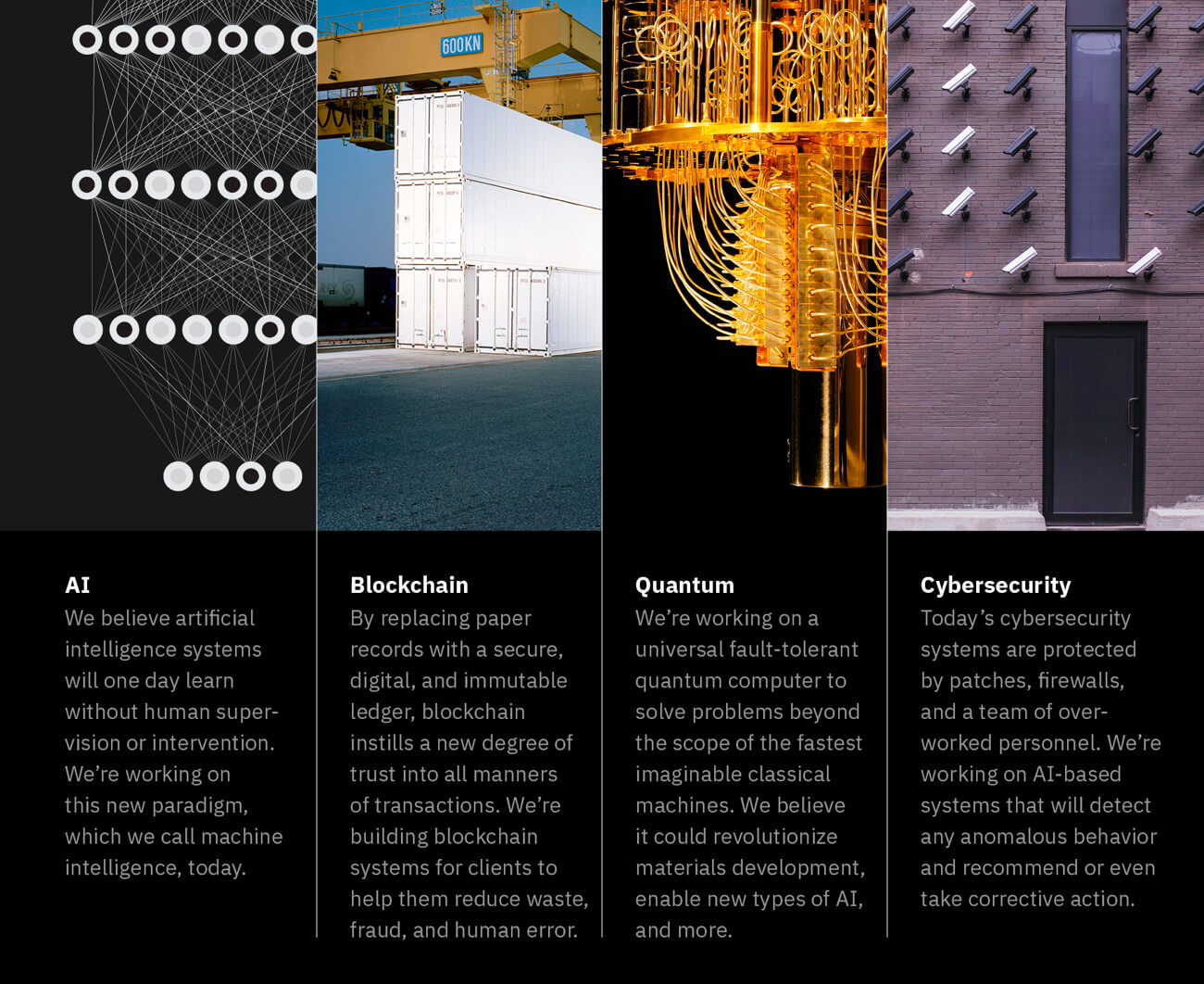
IBM RESEARCH
We stand on the shoulder of Giants
IBM Research has been a home for creative scientific minds since Thomas J. Watson Jr. established the first corporate pure science research laboratory in the U.S. in 1945.
Among our most distinguished former researchers are a Kyoto Prize winner, a U.S. Presidential Medal of Freedom winner, five Turing Award winners and six Nobel Prize laureates. Collectively, they have fostered some of the company’s most stunning technical breakthroughs from the Fortran computing language to the systems that helped put the first man on the moon to the Scanning Tunneling Microscope, the first instrument to image single atoms.
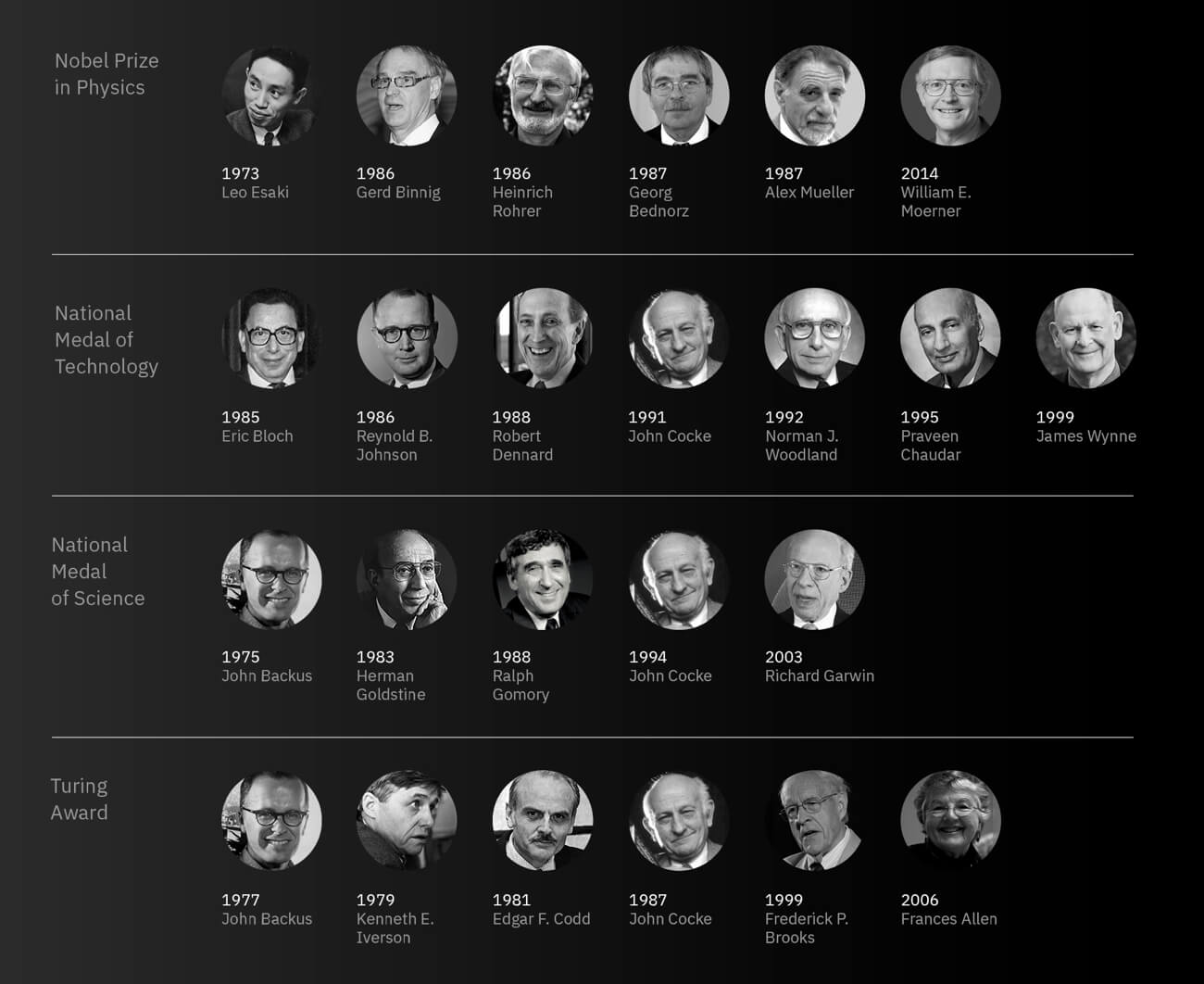
IBM RESEARCH
Today’s visionaries
Our 3,000 scientists around the globe belong to the best in their respective fields – spanning many different disciplines. For many years, their combined achievements put IBM Research in top spots in scientific publications rankings. What’s more, their innovations have been making a lasting impact on how the world works and significantly contributed to IBM’s unmatched 25-year-long U.S. patent leadership.
Our most distinguished scientists are honored as IBM Fellows. The title of IBM Fellow is the company’s pre-eminent technical distinction, granted in recognition of outstanding and sustained technical achievements and leadership in engineering, programming, services, science, design and technology.
IBM RESEARCH
Our most notable inventions
IBM Research is the innovation engine of IBM and the world. Nearly every game-changing breakthrough in the information technology industry has its roots in an IBM Research lab. And we’re primed to define the future of technology for many years to come.
Here are some of our most notable inventions. These technologies have dramatically shaped the world lives and works.
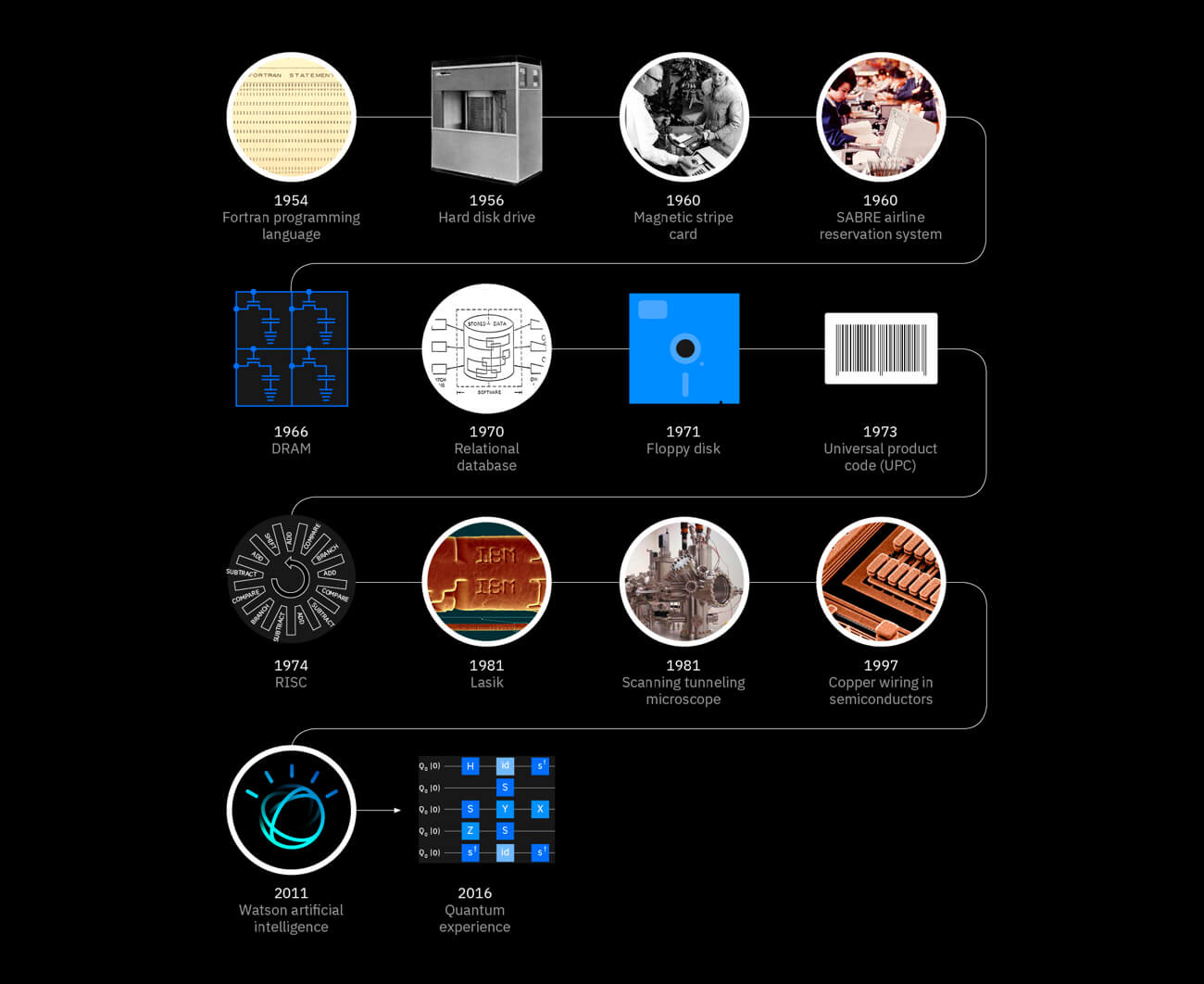
IBM RESEARCH
Explore more and engage with us
We invite you to explore our research areas and connect with us on social media. You can also engage with our researchers through the Think Lab.
At our Think Labs, co-located at IBM Research facilities around the globe, clients can gain insights from IBM researchers, industry and trend experts in order to meet today’s and tomorrow’s challenges.
Our Think Lab in Zurich is our main hub for European clients.
If you want to get in touch, please contact your local IBM client representative.
Try our Tech

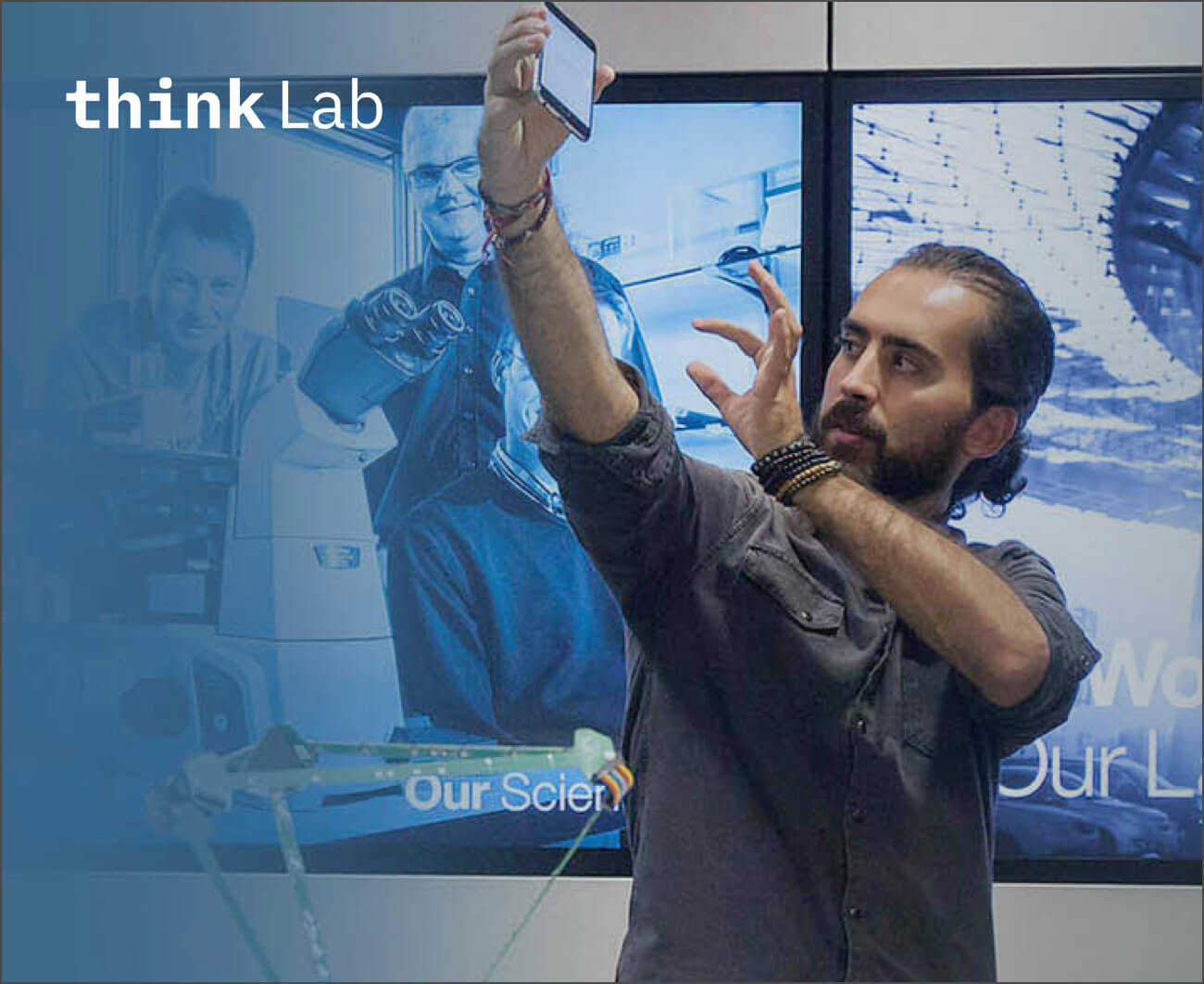

ARTIFICIAL INTELLIGENCE
Advancing AI for Industry
and Society
→
ARTIFICIAL INTELLIGENCE
Trust and transparency for
AI
→
ARTIFICIAL INTELLIGENCE
Cognitive Discovery: AI for
Research and Development
→
ARTIFICIAL INTELLIGENCE
New frontiers: AI learns
the art of debate
→
ARTIFICIAL INTELLIGENCE
Advancing AI for Industry and Society
Our researchers are advancing AI from today’s “narrow” AI to a new era of “broad” AI for business. Broad AI systems will be able to learn and reason more generically across tasks, to integrate different types of information from multiple domains, all while being more explainable, secure, fair, auditable and scalable.
To accelerate progress, our researchers also collaborate with academia, e.g. the MIT-IBM Watson AI Lab, as well as with clients. For example, together with Symrise, one of the top global producers of flavors and fragrances, IBM scientists created a system that helps skilled perfumers to design new fragrances.
Watch the video to learn more about this subject.
ARTIFICIAL INTELLIGENCE
Trust and transparency for AI
As AI advances, and humans and AI systems increasingly work together, it is essential that we trust the output of these systems to inform our decisions. We need to make sure these systems generate output that is secure, bias-free, reliable and explainable. It’s critical – oftentimes a legal imperative – that transparency is brought into AI decision-making.
IBM researchers are developing techniques and algorithms which assess – and address – these foundational elements of trust for AI systems (see at right).
Learn more about unbiased AI in this video.
Try our Tech

ARTIFICIAL INTELLIGENCE
Cognitive Discovery: AI for Research and Development
Cognitive discovery is a new AI and data-driven approach of doing research by making it possible to extract technical knowledge from vast amounts of highly unstructured data . This opens up the next horizon for R&D – enabling companies to accelerate their discovery pipeline and spur innovation.
Cognitive Discovery technologies encompass:
-
Tools to automate
the extraction of knowledge.
-
Methods to combine
public and company internal data
sources with data from simulation and experiments to create a unique
knowledge space.
- AI
Learning models to mine
the data within the knowledge space and to predict new materials or
improve existing processes.
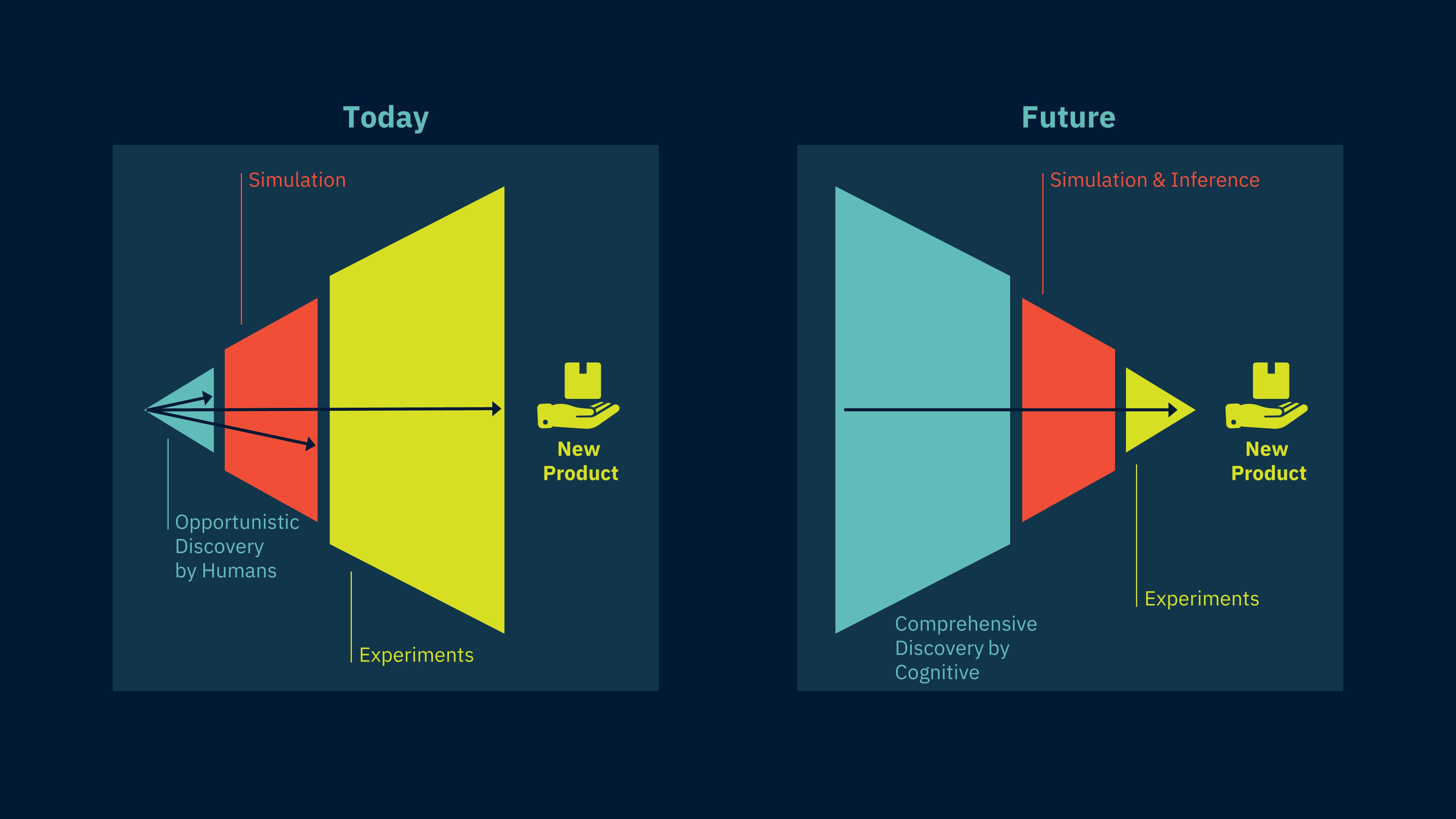
ARTIFICIAL INTELLIGENCE
New frontiers: AI learns the art of debate
The world is awash with information, misinformation, and superficial thinking.
IBM Project Debater pushes the frontiers of AI to debate with humans on complex topics, so that we can build well-informed arguments – extracting pros and cons – and make better decisions. It digests massive texts, constructs a well-structured speech on a given topic and delivers it with clarity and purpose.
In January 2019, Project Debater - Speech by Crowd was demonstrated. It adds a new dimension to the system. Speech by Crowd uses AI to collect free-text arguments from large audiences on debatable topics and to automatically construct persuasive viewpoints to support or contest the topic.
Try our Tech


QUANTUM COMPUTING
IBM Q
→
QUANTUM COMPUTING
What is quantum computing?
→
QUANTUM COMPUTING
A
look inside a quantum computer
→
QUANTUM COMPUTING
Why we need quantum
computing
→
QUANTUM COMPUTING
Quantum applications
→
QUANTUM COMPUTING
Ways to engage
→
QUANTUM COMPUTING
IBM Q
Quantum computers are a radically different kind of computer based on the laws of quantum mechanics. Quantum computers could one day provide breakthroughs in many disciplines.
IBM Q is building quantum computers with the potential to solve some problems beyond the reach of classical computers in such areas as financial services, pharmaceuticals and artificial intelligence.
In January 2019, IBM unveiled IBM Q System One, the world’s first integrated quantum computer for commercial use. This marks the next evolution of IBM Q.
Watch the video for more information.
QUANTUM COMPUTING
What is quantum computing?
Quantum computing is an entirely new approach to processing information using the principles of quantum mechanics.
Whereas a classical computer works with ones and zeros, a quantum computer has the advantage of using ones, zeros and ”superposition” of ones and zeros, allowing a vast number of calculations to perform simultaneously.
In the video at right you can discover how quantum computers work differently from traditional computers we use today.
QUANTUM COMPUTING
A look inside a quantum computer
Several IBM Q quantum devices are available for public use through the cloud, including 5- and 16-qubit devices accessible for free through the IBM Q Experience. 20-qubit devices are available to our clients in the IBM Q Network.
In order to function correctly, IBM’s quantum systems must be kept cold. Any heat in the system can introduce error, which is why quantum computers are designed to operate at temperatures close to absolute zero, colder than the vacuum of space.
At right is a look at how a quantum computer’s dilution refrigerator, made from more than 2,000 components, exploits the mixing properties of two helium isotopes to create such a cold environment for the qubits inside.
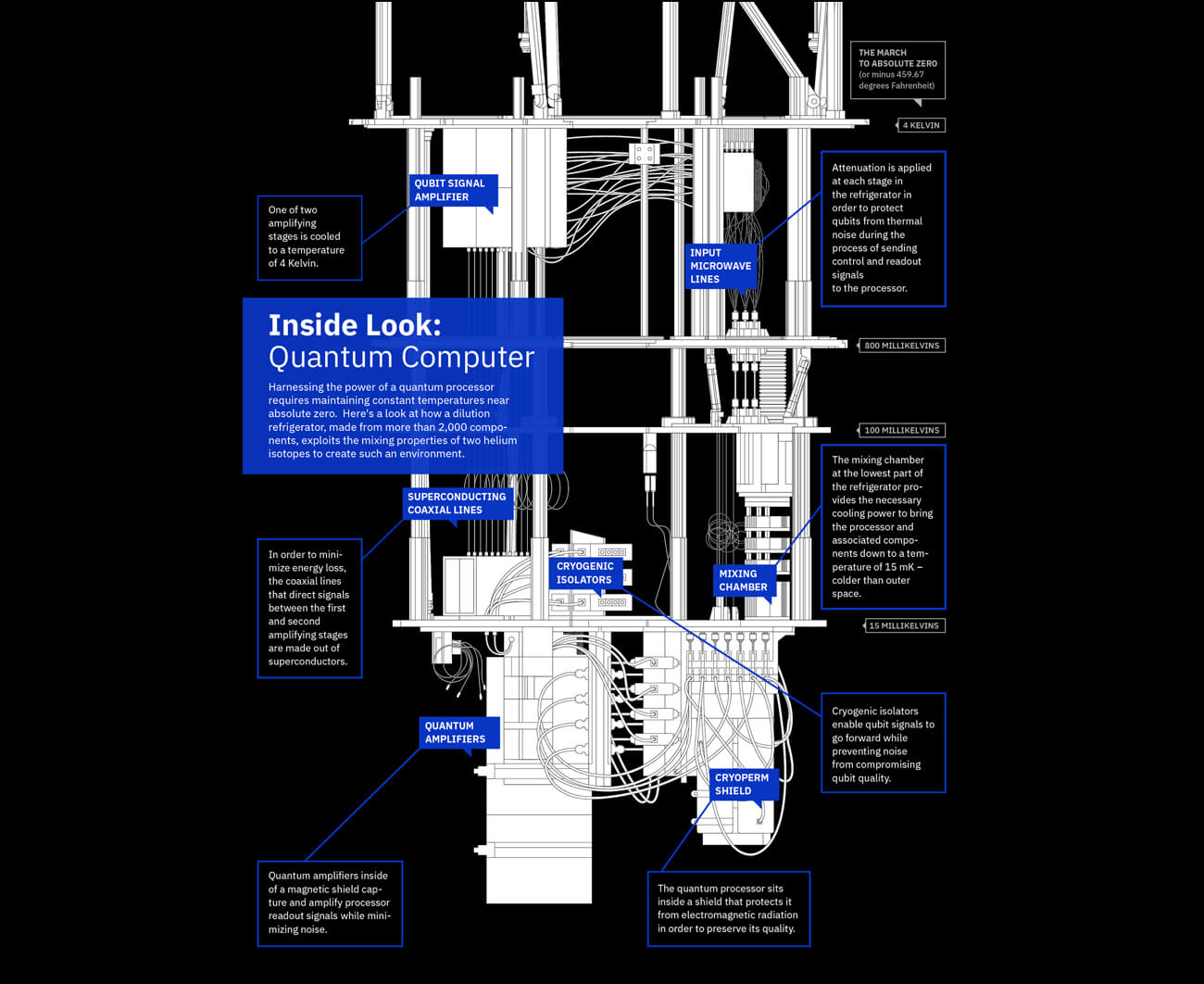
QUANTUM COMPUTING
Why we need quantum computing
For challenges above a certain size and complexity, we don’t have enough computational power on Earth to tackle them. To stand a chance at solving some of these complex problems, we need a new kind of computing: one whose computational power also scales exponentially as the system size grows.
Watch Dr. Jerry Chow, manager of experimental quantum computing for IBM Research, explain how quantum computing can be applied to molecular simulation, which could lead to the discovery of new materials and medicines.
QUANTUM COMPUTING
Quantum applications
Following Watson and blockchain, quantum computing may provide the next powerful set of services delivered via the IBM Cloud.
Areas that may be revolutionized by quantum computing include materials and drug discovery, the optimization of complex systems, and artificial intelligence. But to realize those breakthroughs, and to make quantum computers widely useable and accessible, we need to reimagine information processing and the machines that do it.
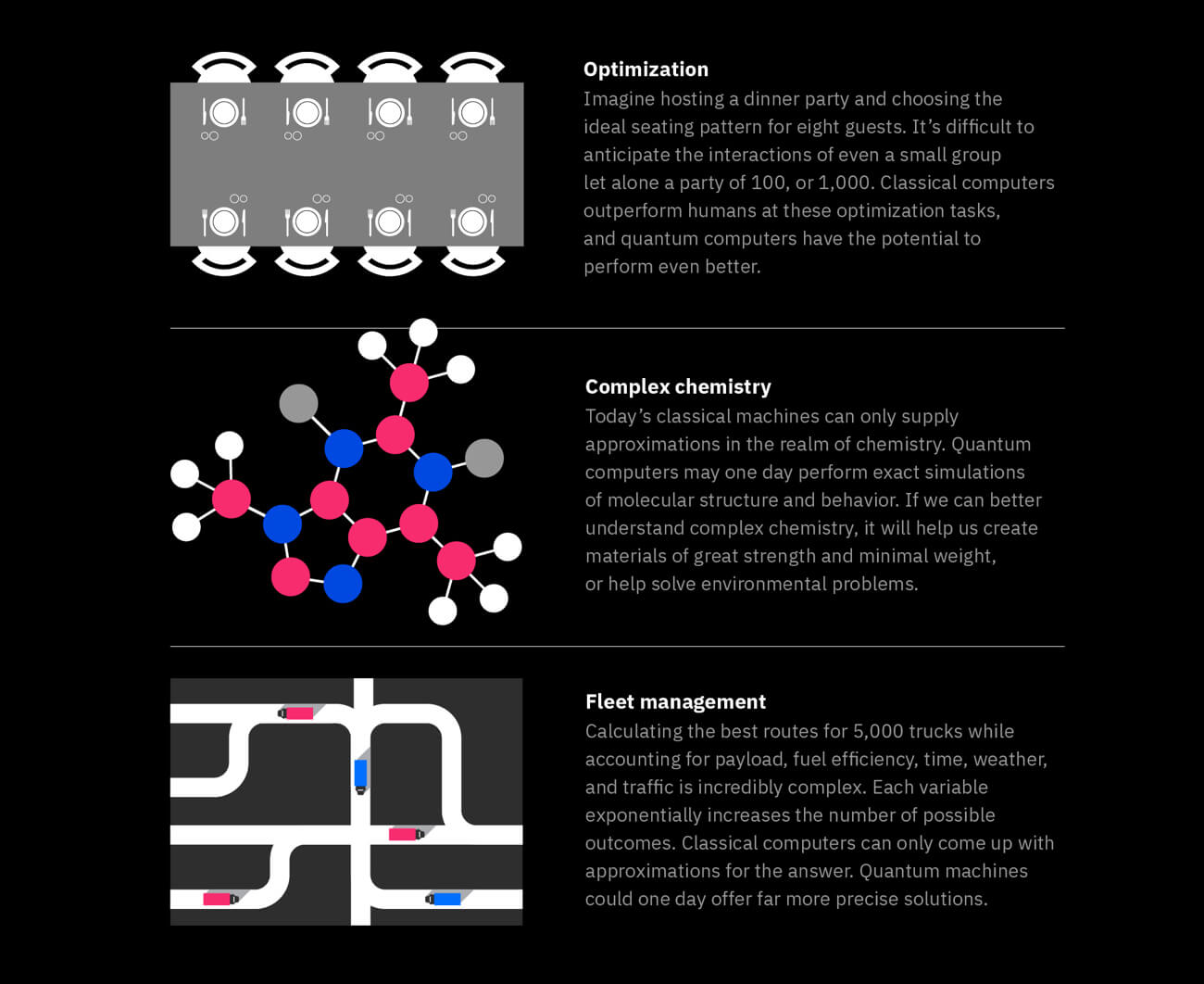
QUANTUM COMPUTING
Ways to engage
IBM Q is the industry's first effort to introduce the public to programmable universal quantum computing through:
-
the cloud-based IBM Q Experience, which is accessible to everyone. It supports more than 100,000 users already.
-
the commercial IBM Q Network platform for business and science applications. Participating organizations get access to quantum expertise and resources, as well as to IBM's most advanced quantum computing systems.
-
Qiskit, a full-stack, open-source quantum software development kit. www.qiskit.org
Learn more about the IBM Q network in this video.
Try our Tech


BLOCKCHAIN
Building a trusted platform
→
BLOCKCHAIN
Collaborating on big
problems
→
BLOCKCHAIN
An AI/blockchain ecosystem
→
BLOCKCHAIN
Protecting goods from
counterfeiting
→
BLOCKCHAIN
Putting Blockchain into
practice
→
BLOCKCHAIN
Building a trusted platform
IBM Research is using blockchain to re-imagine fundamental business processes and invent new styles of secure digital interaction that will change the way the world works.
Why
blockchain?
By replacing paper records with a
secure, digital, and immutable ledger, blockchain instills a new
degree of trust into all manners of transactions. We’re building
blockchain systems for clients to help them reduce waste, fraud, and
human error. Blockchain also speeds up the flow of commerce and
makes it possible to track goods across the entire supply chain.
BLOCKCHAIN
Collaborating on big problems
Blockchain’s distributed network enables partners and even competitors to collaborate. Here’s a look at how a blockchain economy could benefit the food industry and increase food safety.
Making it
more secure
Blockchain’s strength comes from its
open, public nature. But how can a public ledger hold confidential
data? We’re harnessing IBM’s cryptography skills to solve that
problem. We’re also developing methods to increase blockchain’s
processing speed, compatibility, and scalability. Have a look at
three of our far-reaching initiatives to extend the value of
blockchain in new areas.
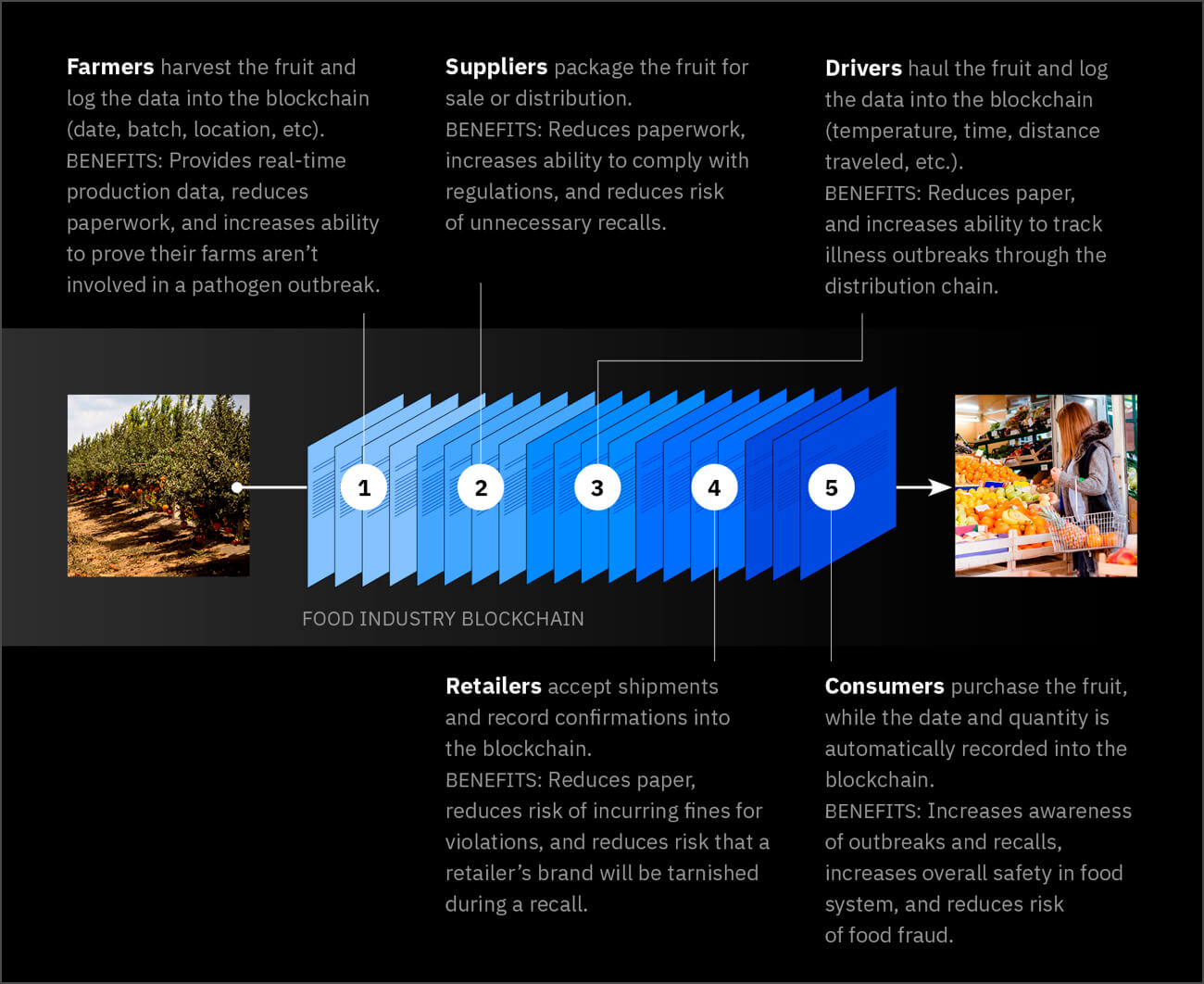
BLOCKCHAIN
An AI/blockchain ecosystem
We are marrying two powerful technologies to generate insights about our clients’ business processes. The trusted data in a blockchain acts as fuel for AI, offering the potential to mitigate product defect, optimize fleets, and create more efficient routes to market.
The video shows how a combination of AI for authentication and blockchain could change the global diamond trade.
BLOCKCHAIN
Protecting goods from counterfeiting
We’re creating immutable digital fingerprints known as crypto anchors that can be embedded into products. Deployed widely, they could extend the benefits of blockchain to the physical world.
Here’s a look at how crypto anchors could help battle the scourge of counterfeit diagnostic tests.
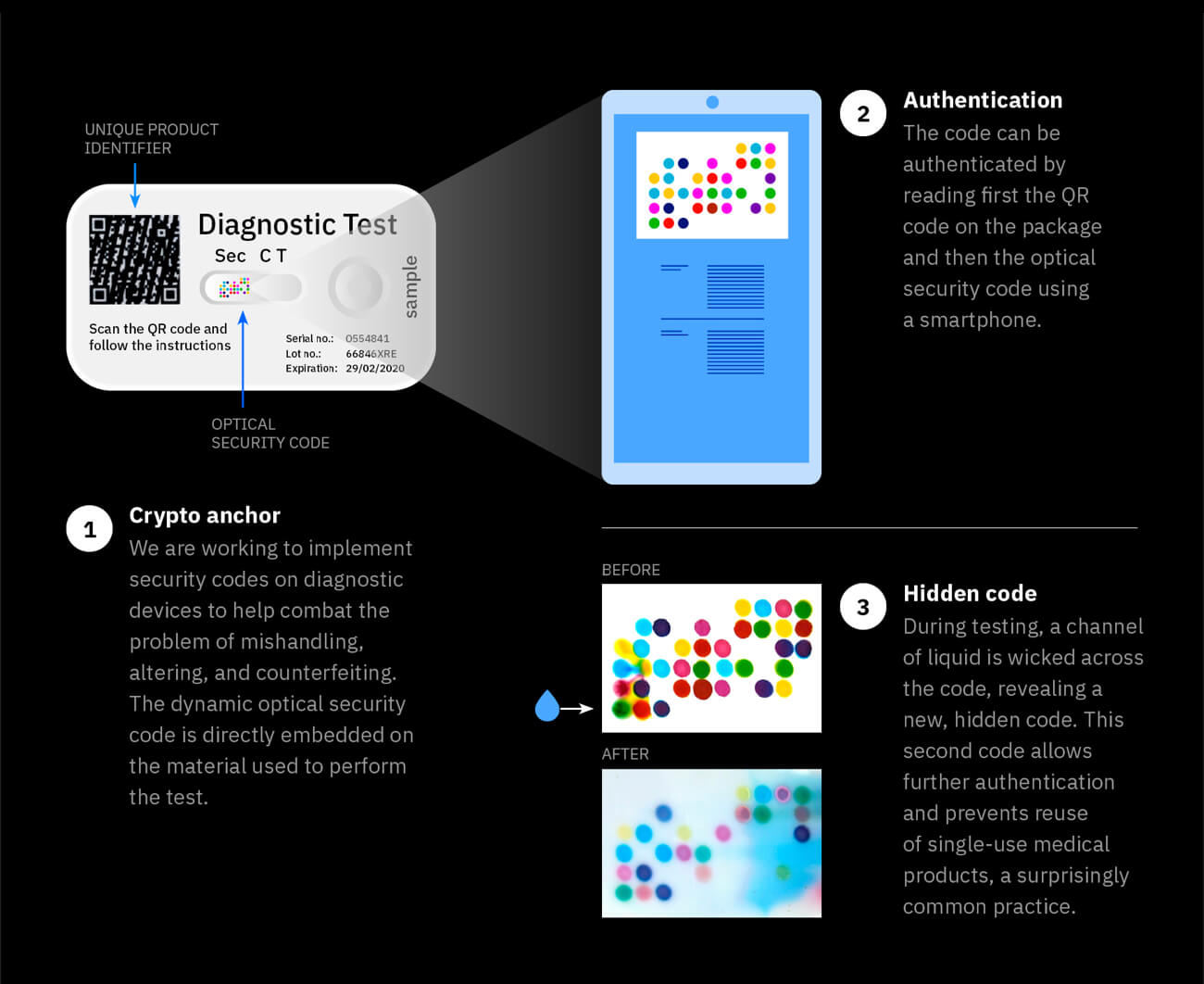
BLOCKCHAIN
Putting Blockchain into practice
IBM researchers are working with clients, governments and academics to design and develop blockchain solutions that create trust and remove frictions inhibiting business.
We're building networks to simplify and secure all types of digital transactions, from financial exchanges, supply chains, IoT and risk management to digital rights management and healthcare.
